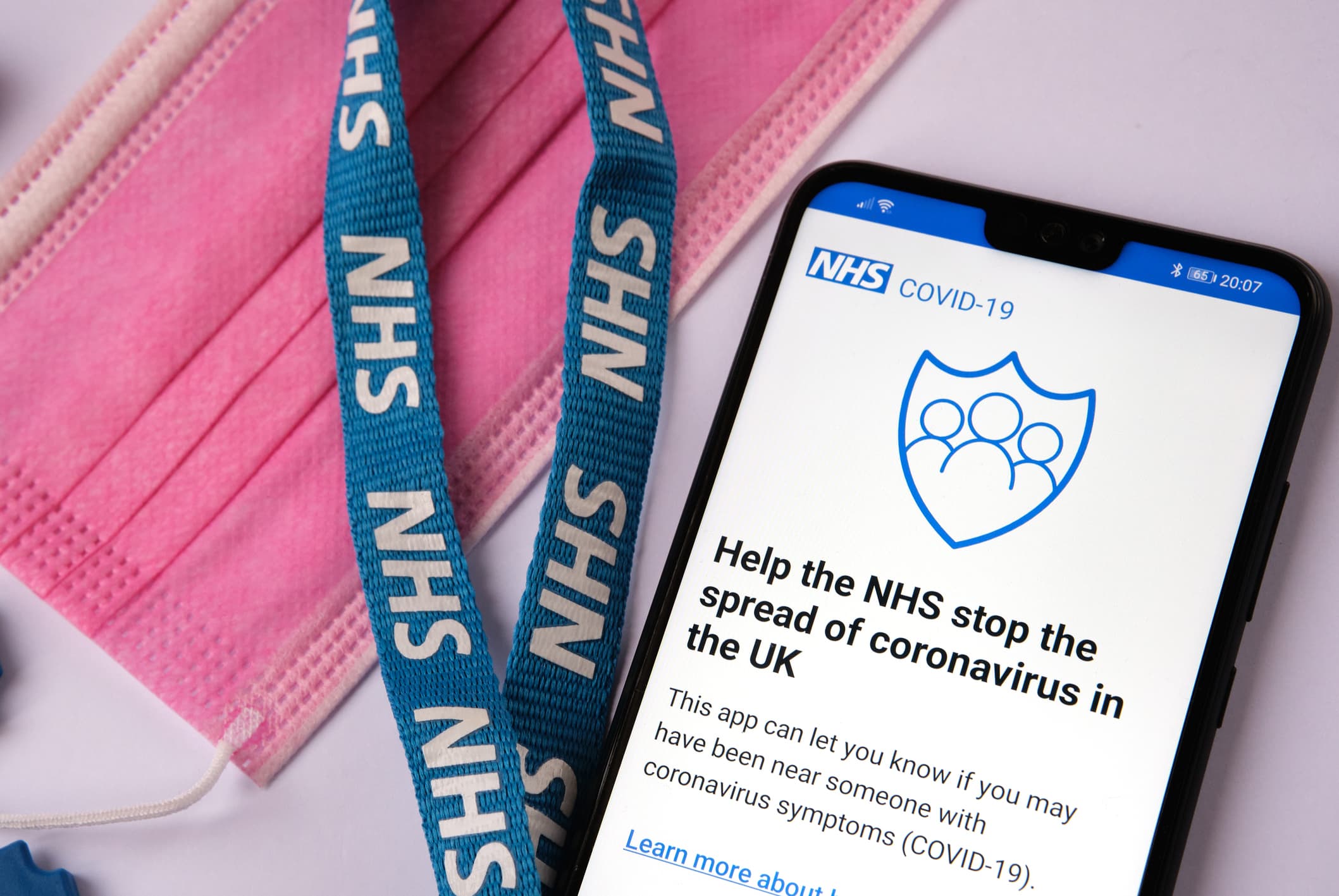
Selective focus. Concept photo.
Oleksandr Siedov | iStock Editorial | Getty Images
LONDON — Downloads of the U.K.’s contact tracing app surged last week, according to new data, despite widespread concerns of people being told to self-isolate amid a sharp rise in coronavirus cases.
The NHS Covid-19 app was downloaded 161,000 times in the week of July 11-17, according to figures from analytics firm App Annie, up from 131,000 in the previous week and 137,000 from June 27-July 3.
Meanwhile, weekly active users — defined as anyone who opens the app in a given week — held at 14.7 million in the weeks of July 11-17 and July 4-10, up from 14.4 million from June 27-July 3.
This does not mean everyone using the app had its contact tracing feature enabled. Some may have disabled the feature.
Nevertheless, it shows engagement with the app is still strong despite fears more people are deleting it to avoid self-isolation.
“Downloads have spiked when there is an announcement hinging on using the app, and then they tend to taper back, but usage has remained strong week on week,” Lexi Sydow, App Annie’s head of market insights, told CNBC.
“Ultimately, usage will be a better metric of how people are actually engaging with the app.”
Millions of Brits could be pinged by the app over the summer, after the country lifted its remaining Covid restrictions and as the number of infections in the country has climbed.
More than 1.1 million people in England and Wales have been pinged by the app over the last two weeks.
Last Friday, the U.K. reported more than 50,000 new cases for the first time since mid-January. Daily cases have fallen somewhat since but are still in the tens of thousands.
What is contact tracing?
The NHS Covid-19 app was introduced by the U.K. government last year as a way to carry out traditional contact tracing — where the contacts of someone who has been infected are alerted — using technology.
The idea is that people are informed if they’ve been near someone that’s infected with the coronavirus, and advised to isolate to reduce spread in the population.
The England and Wales contact tracing app, like many others, uses Bluetooth to detect users who are nearby. If a user comes into close proximity with someone who has tested positive, they are informed and told to self-isolate.
This has become controversial for businesses at a time when the U.K. is seeing a resurgence in Covid cases, and as England lifts nearly all its remaining restrictions on public life.
According to the Chartered Institute of Personnel and Development, 57% of human resources professionals say they have suffered staff shortages in the last month due to employees being told by the app to self-isolate.
The app was initially pitched as a crucial part of plans to lift England’s lockdown restrictions in the early part of the pandemic. However, more recently the government has sought to play down its significance.
From August 16, a policy change is set to come into effect which will mean those who have received two Covid vaccine shots are exempt from self-isolating when told to by the app.
The government has also identified a list of workers who could avoid isolation even if they are exposed to the virus.
There are now doubts about how effective the app will be going forward.
“The exposure notification app made sense at the beginning of the pandemic when we did not have vaccines and we had high numbers of deaths and hospitalisations,” Stephanie Hare, an independent tech researcher, told CNBC.
“The goal was to break the chain of transmission — to stop the spread of the virus — and all of our policies were aligned,” she added.
“Under Boris Johnson’s new policy for England, we are no longer trying to break the chain of transmission, and so the exposure notification app becomes less useful for society,” said Hare.
“It might still be useful for individuals who want to download it and use it and would prefer to know if they have been exposed.”
This article was originally published on CNBC

